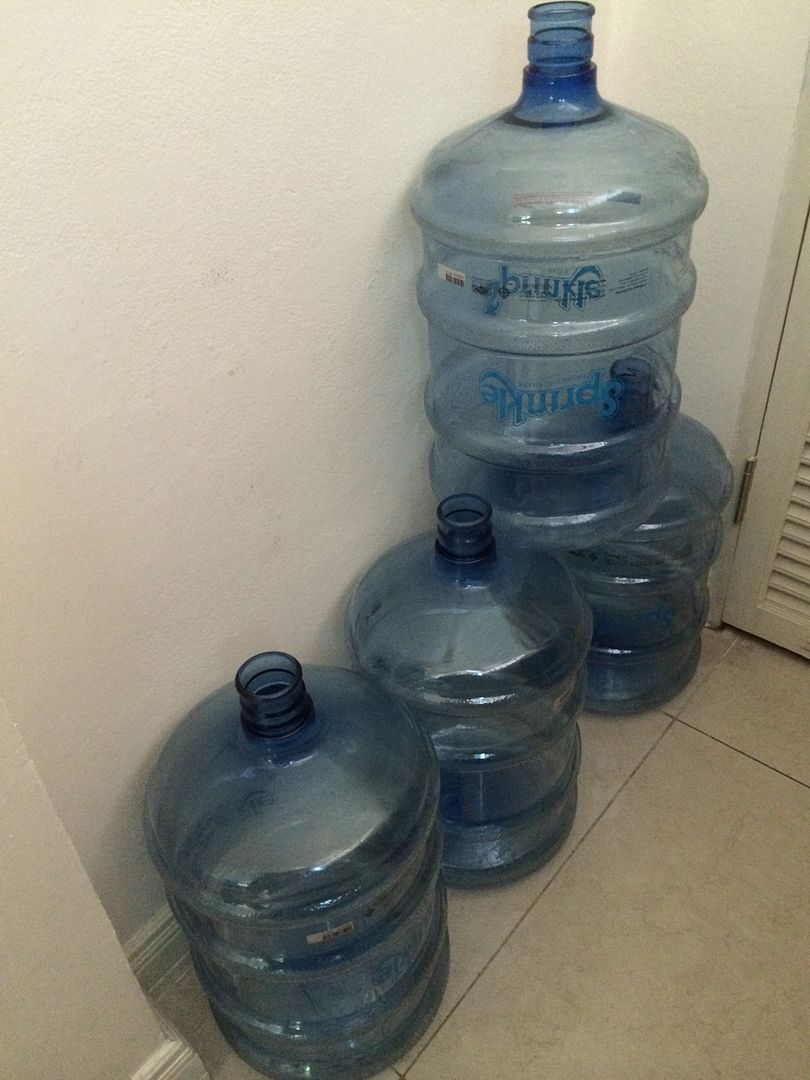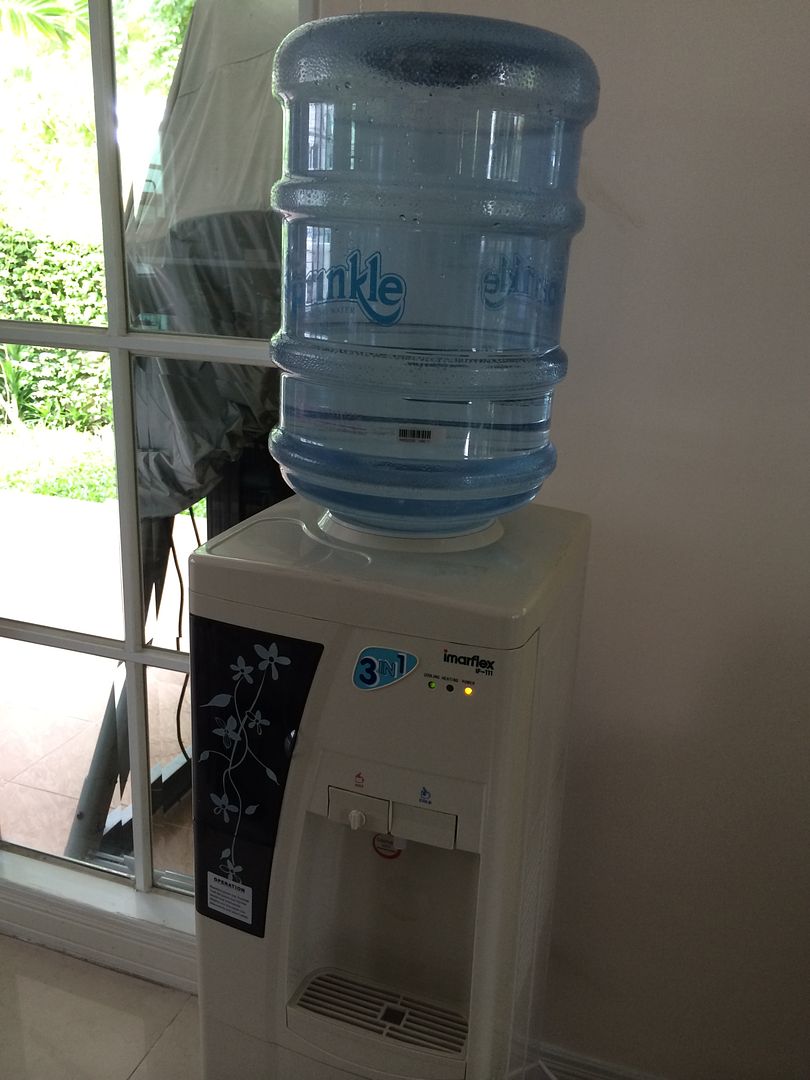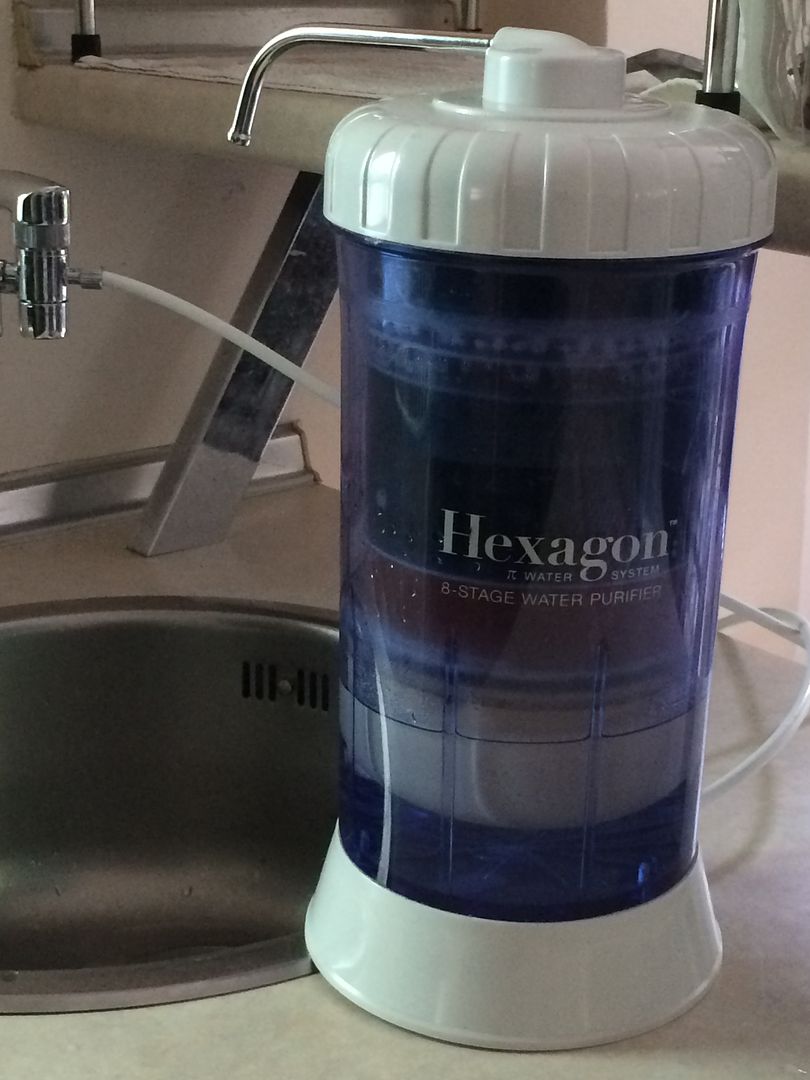For those with angina or respiratory problems, juice few raw onions and consume it in the morning.. Doesn't taste nice but its effective for the chest.. Best to consume it in the morning on an empty tummy..
I find that Vitamin E is very helpful.
For those with angina or respiratory problems, juice few raw onions and consume it in the morning.. Doesn't taste nice but its effective for the chest.. Best to consume it in the morning on an empty tummy..
I find that Vitamin E is very helpful.
I am not a fervent juicer nor do I watch my diet very closely but am nevertheless somewhat conscious about what I eat. I do like fruit juices and drink it whenever I have access to it but am not religious about it. Below is an article I came across that might be of interest to those of you who are in this discussion.
Cheers!
http://www.theglobeandmail.com/life...rink-your-daily-fruit-intake/article18644462/
Eating your daily fruit intake is healthier than drinking it Add to ...
Carly Weeks
The Globe and Mail
Published Tuesday, May. 13 2014, 4:11 PM EDT
Last updated Tuesday, May. 13 2014, 4:11 PM
What is juice? According to Canada’s Food Guide, the country’s official healthy-eating bible, a half-cup of 100-per-cent fruit juice is equivalent to a serving of fruit. But if you ask a nutritionist, obesity expert or public-health advocate, you will likely get a different answer.
As more evidence emerges showing a link between moderate or high sugar consumption and heart disease, stroke, obesity and other serious health problems, many experts are looking at sugars, and the sources of the sweet stuff – even vitamin-rich juice – in a new way. And that means pure fruit juice, once the beacon of balanced breakfasts and nutritious school lunches, is undergoing a rapid reassessment.
“It’s flat soda pop masquerading as healthful,” said Dr. Yoni Freedhoff, assistant professor of family medicine at the University of Ottawa and medical director of the Bariatric Medical Institute.
It’s becoming increasingly clear that despite what many of us believe, fruit juice is not a healthy choice.
For years, conventional wisdom said that even though 100-per-cent fruit juice contains a fair bit of sugar, any negative effects were outweighed by the vitamins and nutrients it contains.
That thinking led Health Canada to count a half-cup of pure fruit juice toward the daily servings of fruit and vegetables recommended by the Canada Food Guide, a document used by public-health officials, dietitians, nutritionists and educators across the country. And it’s what led the Heart and Stroke Foundation of Canada to allow many fruit-juice makers to put its coveted Health Check seal on their products.
Now, the tide is turning. A study published earlier this year in the Journal of the American Medical Association found that people who get 10 to 25 per cent of their daily calories from sugar increase their risk of cardiovascular problems by as much as 30 per cent. In March, the World Health Organization declared that people should limit consumption of “free sugars,” which includes sugar added to food by manufacturers or consumers, as well as fruit juice, honey and syrups, to no more than 10 per cent of total daily calories. Ideally, the WHO says the limit should be 5 per cent of daily calories, which is about 100 for the average adult. There’s at least that many calories in half a cup of most types of 100-per-cent juice.
The Heart and Stroke Foundation is in the midst of a major review of its policies on sugar consumption, and the outcome could result in changes to which products qualify for the Health Check program, said Manuel Arango, the organization’s director of health policy.
The Canadian Paediatric Society’s guidelines say children should drink no more than a half-cup of juice a day – 100-per-cent fruit juice, not juice blends or cocktails, which often contain added sugar.
Aside from the sugar content, there are a few other concerns that make fruit juice a less-than-ideal choice. Fruit juice doesn’t have the fibre or phytochemicals found in whole fruit. And a number of studies have found that drinking juice doesn’t help people feel full, even though a glass of it contains a few hundred calories.
“It’s not as clearly bad as sugar water, but it [has] nowhere near the health benefits that actual fruit has,” said Dr. Tom Warshawski, pediatrician and chair of the Childhood Obesity Foundation.
Diane Welland, nutrition communications manager with the Washington-based Juice Products Association, takes a different view. “I think some of these worries are unfounded,” she said.
The Juice Products Association has research showing people who consume fruit juice also eat healthier diets than people who don’t and that fruit juice, on its own, cannot explain rising rates of obesity and other health problems.
Carol Freysinger, executive director of the Juice Products Association, said fruit juice is just the latest victim of the anti-sugar crusade. “Sugar is the demon du jour,” she said.
She may be right. But as new reports and warnings about the dangers of moderate and excessive sugar consumption continue to dominate headlines, health experts want to capitalize on the opportunity to deliver a simple, but very important, message.
“You should eat your fruit and drink your water,” says Warshawski. “You shouldn’t try to drink your fruit.”
Interested to start on this.
However, do I really have to get organic veg and fruits?
What's the best combi for a beginner?
 There are different levels of organic. There are the locally grown stuff which are grown without using chemicals. These are probably grown by using hydroponics. The more expensive organic produce is imported from places like Australia, NZ, US,... The reason I go with Australian organic produce is because the soil & environment is more pristine.
There are different levels of organic. There are the locally grown stuff which are grown without using chemicals. These are probably grown by using hydroponics. The more expensive organic produce is imported from places like Australia, NZ, US,... The reason I go with Australian organic produce is because the soil & environment is more pristine.Will try out Vitamin E one of this days.. Had a bout of asthma recently.. Someone told me to try out onion juice.. Worked well for me but the only drawback was the awful taste..

This is getting ridiculous,,,1st say juicing good,,than now say juicing bad,,,all these bloody articles are good for the trash bin,,,,
Bloody plane delayed for an hour during take off at Taipei so arrived home 1am no time to buy but first thing this morning headed to the supermarket for these....

Did you get that portable hand ionizer?
Which store in BKK carries them
Nope not yet. I want to understand it more first and I couldn't get any information from the internet. That guy selling me the Hurom is selling this. I'll probably ask him on Monday when he delivers my 6th and 7th units that I ordered from him.
In places like Indonesia it would probably be useful because the water there is not potable.
During last CNY gathering, I heard from a relative diabetes patients in rural Indonesia are very poor and cannot afford to go for kidney dialysis, they boil a type of native leave and drink it. I forgot the name of the leave.
During last CNY gathering, I heard from a relative diabetes patients in rural Indonesia are very poor and cannot afford to go for kidney dialysis, they boil a type of native leave and drink it. I forgot the name of the leave.
Does it help?

In places like Indonesia it would probably be useful because the water there is not potable.



No need to over complicate things. You can stick to simply ingredients. For the greens use 1 or more of kale, romaine lettuce, celery,..... Added in some sweetness like carrots & apples. There are many juicing recipe books in the library but you don't really need them. It's up to you to experiment on quantity & mixture.
Sometimes when I feel like it, I juice only oranges using this method:
[video=youtube;X9GZxsfZ0LY]http://www.youtube.com/watch?v=X9GZxsfZ0LY[/video]
You will have to decide on whether the cost of organic is worth the $.There are different levels of organic. There are the locally grown stuff which are grown without using chemicals. These are probably grown by using hydroponics. The more expensive organic produce is imported from places like Australia, NZ, US,... The reason I go with Australian organic produce is because the soil & environment is more pristine.
